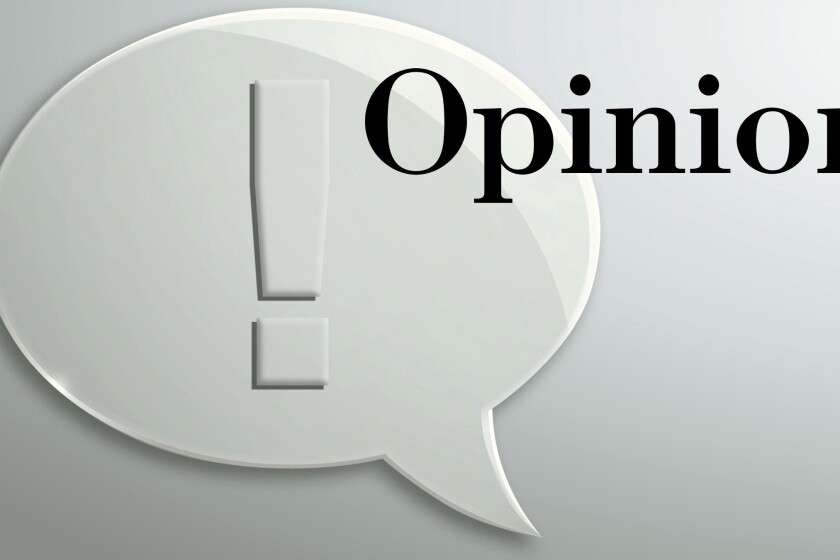Imagine being told that to keep your job you had to contribute to the political campaign of a candidate you strongly opposed or to a cause you found offensive. This seems an outlandish scenario for any American worker.

Yet in 22 states, including Minnesota, it's the norm for public employees.
But hope is on the horizon. Janus v. AFSCME, a case currently before the U.S. Supreme Court, has the potential to change that and expand freedom for public employees in our state and around the country.
The plaintiff, Mark Janus, is a dedicated public servant who works for the Illinois Department of Healthcare and Family Services. The Land of Lincoln, like the Gopher State, does not have right-to-work laws. As a result, Janus must pay dues to the American Federation of State, County and Municipal Employees union or risk losing his job.
ADVERTISEMENT
Janus makes the point that AFSCME's collective bargaining is intrinsically political because the union negotiates with the government and directly impacts public policy. In addition, he is personally opposed to the causes the union supports using his dues. He argues that since the 1st Amendment protects against compelled speech, he should not be forced to pay a union that, on many issues, doesn't speak for him.
Of course, Janus isn't the only union-dues payer whose money is being funneled to candidates and issues they disagree with. Consider this: Around 40 percent of union households typically vote for the Republican presidential candidate, yet 99 percent of union political contributions go to Democrats or left-wing causes. A comprehensive analysis of union advocacy spending from 2010 to 2016 shows that labor unions sent more than $1.1 billion of collective-bargaining dues to liberal advocacy groups aligned with the Democratic Party. The Democratic Governors Association and the Clinton Foundation were among the major recipients.
Regardless of where they fall on the political spectrum, most Americans can agree that it is unfair to force workers to fund political advocacy that runs counter to their personal beliefs.
The political spending of government unions has an additional sinister element: It goes toward electing the same officials who then sit at the bargaining table. The perverse incentives this creates are self-evident. Government unions advocate for ever-increasing spending and higher taxes and when their demands meet little resistance, state budgets are in trouble. That's why states with the worst fiscal woes also tend to have the most powerful government unions.
Polling shows that more than 80 percent of union households nationwide believe that unions should be required to get permission from each member before using their dues for any purpose other than collective bargaining. But under current law, unions don't need approval from their members before they spend dues money on political advocacy.
Janus recounted that when he was hired nobody even asked whether he wanted union representation. "I only found out the union was involved when money for the union started coming out of my paycheck," he said.
Home health care workers in Minnesota know what that feels like. In 2013, Gov. Mark Dayton signed a law declaring them to be government employees, but only for collective-bargaining purposes. The Service Employees International quickly moved in with an aggressive effort to unionize all 27,000 personal care attendants in in our state. Just under 6,000 workers voted, but since the majority (3,543) voted "yes," the union won.
The following year, workers who had not opted into the union reported that dues were being taken from them even though a 2014 U.S. Supreme Court decision involving home health workers said unions could collect dues only from those who opt into the union and agree to pay. When one worker complained, Service Employees International officials told her they had a signed dues-deduction agreement on file. She demanded a copy of the agreement and was stunned to see that her signature had been forged. In her case, the union agreed to refund the money, but others were not so lucky.
ADVERTISEMENT
The purpose of unions is to protect and aid workers, but this arrangement is turned on its head when employees are obligated to join. Depending on the ruling, the Janus case may ensure that unions are more responsive to their members, and it's an opportunity to expand freedom to millions of public employees.
Whether a union member or not, every American has as an interest in Janus' success because nobody should be forced to give up their 1st Amendment rights in exchange for employment.
Jason Flohrs is the Minnesota state director for Americans for Prosperity, which has its Minnesota office in Burnsville (americansforprosperity.org). He submitted this for publication exclusively to the News Tribune.






